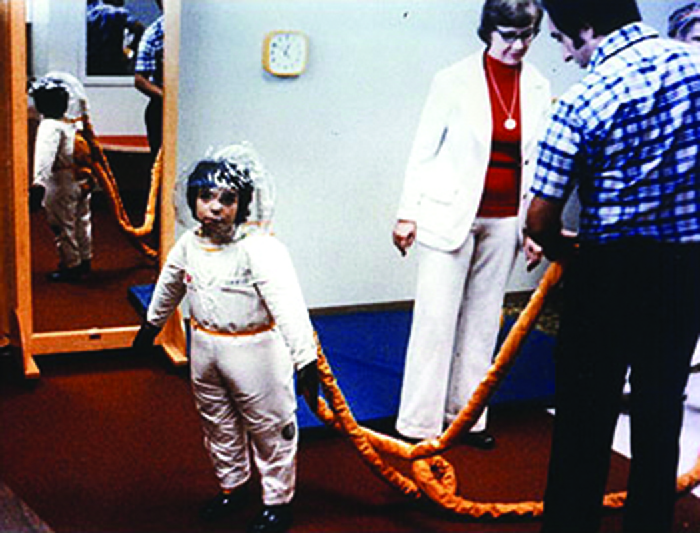Severe Combined Immunodeficiency
Watchlist
Retrieved
2022-04-26
Source
Trials
—
Genes
PRKDC,
RAG1,
JAK3,
CD3E,
ZAP70,
CD3D,
RAG2,
IL7R,
ADA,
DCLRE1C,
LIG4,
IL2RG,
PTPRC,
AK2,
CD247,
CORO1A,
IL21R,
TBX1,
TCN2,
TFRC,
MTHFD1,
CHD7,
TTC7A,
XRCC4,
RMRP,
BCL11B,
RAC2,
ATN1,
MYOCOS,
IL2
PRKDC,
RAG1,
JAK3,
CD3E,
ZAP70,
CD3D,
RAG2,
IL7R,
ADA,
DCLRE1C,
LIG4,
IL2RG,
PTPRC,
AK2,
CD247,
CORO1A,
IL21R,
TBX1,
TCN2,
TFRC,
MTHFD1,
CHD7,
TTC7A,
XRCC4,
RMRP,
BCL11B,
RAC2,
ATN1,
MYOCOS,
IL2,
PGM3,
PKIG,
CD34,
MYOC,
MYH7,
ORAI1,
IL7,
EBI3,
IL18R1,
FOXN1,
LINC02605,
CD19,
PNP,
ACTB,
IL15,
IL4,
PLAU,
MS4A1,
DPP4,
TP53,
STIM1,
FUT1,
POTEF,
KRT20,
LGALS1,
IFNA13,
CXCR4,
CDK2,
CCND2,
IFNA1,
TGFB1,
TRBV20OR9-2,
HLA-C,
PECAM1,
MIR17HG,
TNF,
CD40,
BCL2,
IL10,
LBR,
TNFSF13B,
CSF2,
NOD1,
PPARG,
STAT3,
CARD11,
EPHA2,
IL21,
ALB,
CD28,
CYBB,
IL23A,
STAT5A,
MIA,
FOXP3,
SOAT1,
IL22,
CSF3,
SYK,
AIRE,
PDLIM7,
RFXAP,
PDHX,
CDR3,
ADO,
XRCC5,
SLC46A1,
NLRP3,
PRM3,
LINC01194,
VTN,
VIM,
SOX1,
SPARC,
STAT1,
ERVK-32,
NCF1,
STAT5B,
TAPBP,
MIR34A,
TEK,
TGFBR1,
RTL1,
THRB,
THY1,
TYRP1,
VEGFA,
CCDC54,
DCLRE1A,
LGR5,
TBC1D9,
AMACR,
C3CER1,
RASGRP3,
MTHFD1L,
LDLRAP1,
LAT,
IGHD7-27,
HIF3A,
ASAP1,
LINC00328,
TNFRSF12A,
SPA17,
APBB1IP,
MTPAP,
PRMT6,
PACC1,
CARD9,
ERVK-6,
NLRP2,
TWSG1,
AICDA,
ANGPTL2,
WDTC1,
TP63,
TUSC2,
PROM1,
ASAP2,
IER3,
INA,
MTA2,
KLF4,
CER1,
CXCL14,
ACTR2,
PDPN,
CTCF,
HPSE,
MRPS30,
PAPOLA,
DOCK8,
COL18A1,
NHEJ1,
RASSF1,
SLC20A1,
PHB2,
PDAP1,
SMN1,
ABL1,
CXCL12,
DMD,
E2F1,
EMP2,
ENG,
EPHA3,
ERBB2,
EXTL3,
F3,
F9,
GPC5,
FOXM1,
MLANA,
FN1,
GHR,
GPT,
HIF1A,
HLA-B,
HPCA,
HPGD,
SP110,
IFNAR2,
IFNG,
CCN1,
IKBKB,
IL1B,
IL2RA,
DOCK2,
DHFR,
IL3,
CYP2J2,
ACTN4,
ADCP1,
PARP1,
ANXA2,
KLK3,
ATM,
B2M,
CCND1,
BCL6,
BTK,
C1QBP,
CAMP,
CASP3,
CD3G,
CD38,
CD40LG,
CDH3,
CDH17,
CDK4,
CDKN2A,
CEACAM5,
CEACAM3,
CEACAM7,
CCR5,
CTLA4,
IL2RB,
IL6,
RPS19,
NCAM1,
NNMT,
NOTCH1,
NT5E,
OTC,
PAEP,
REG3A,
PAPPA,
PAX1,
PCNA,
ABCB1,
ACP3,
PIK3CB,
PIK3CD,
PIK3CG,
PIK3R1,
POU1F1,
SRGN,
KLK6,
PSG2,
PSMA6,
PTEN,
PTGS2,
RET,
ABCE1,
ROBO1,
NME1,
NBN,
IL9,
MYO1E,
CXCR2,
IL18,
PDX1,
ITGAV,
ITGB3,
JAK2,
CD82,
STMN1,
LCK,
LDHC,
LDLR,
LMNA,
LRP5,
LTF,
EPCAM,
MELTF,
MME,
MMP1,
MMP9,
MMP13,
MMP14,
MPL,
MUC1,
MYC,
MYD88,
PIK3CA
Drugs
Allogeneic multi-virus specific T lymphocytes targeting BK virus, cytomegalovirus, human herpesvirus-6, Epstein Barr virus and adenovirus,
Autologous CD34+ cells transduced with a lentiviral vector containing the human ADA gene
(
STRIMVELIS
),
Autologous CD34+ cells transduced with a lentiviral vector containing the human RAG1 gene
Allogeneic multi-virus specific T lymphocytes targeting BK virus, cytomegalovirus, human herpesvirus-6, Epstein Barr virus and adenovirus,
Autologous CD34+ cells transduced with a lentiviral vector containing the human ADA gene
(
STRIMVELIS
),
Autologous CD34+ cells transduced with a lentiviral vector containing the human RAG1 gene,
Autologous CD34+ cells transfected with retroviral vector containing adenosine deaminase gene,
Autologous bone marrow CD34+ cells transduced ex vivo with a self activating HIV-1 -based lentiviral vector, EFS-ADA,
Pegademase bovine
(
ADAGEN
),
Retroviral gamma-c cDNA containing vector,
haematopoietic stem cells and blood progenitors umbilical cord-derived expanded with (1R, 4R)-N1-(2-benzyl-7-(2-methyl-2H-tetrazol-5-yl)-9H-pyrimido[4,5-b]indol-4-yl)cyclohexane-1,4-diamine dihydrobromide dihydrate
Registered!

Severe combined immunodeficiencies (SCID) are inherited immune system disorders characterized by abnormalities with responses of both T cells and B cells (specific types of white blood cells needed for immune system function). Common signs and symptoms include an increased susceptibility to infections including ear infections; pneumonia or bronchitis; oral thrush; and diarrhea. Due to recurrent infections, children with SCID do not grow and gain weight as expected (failure to thrive). SCID may be caused by mutations in any of several genes and can be inherited in an X-linked recessive (most commonly) or autosomal recessive manner. The most common type of SCID is called X-linked severe combined immunodeficiency (XSCID). Another form of SCID is caused by a deficiency of the enzyme adenosine deaminase (ADA). Infections are treated with specific antibiotic, antifungal, and antiviral agents and administration of intravenous (IV) immunoglobulin. The most effective treatment is transplantation of blood-forming stem cells from the bone marrow of a healthy person.